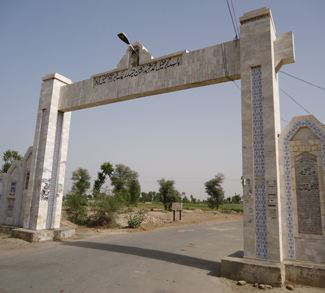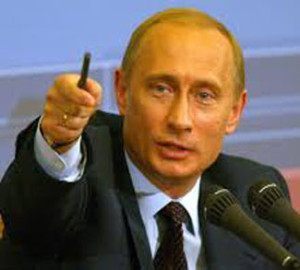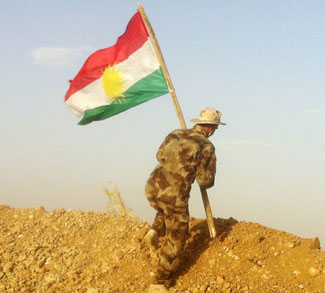FORECAST
The recently negotiated U.S.-Iraq Status-of-Forces security pact signals the beginning of the end of the U.S. occupation of Iraq.
The draft version of the pact, reached after months of oft-acrimonious negotiations and confirming details leaked earlier in the week, governs the presence of U.S. troops in Iraq after the U.N. mandate expires at the end of 2008. It calls for U.S. forces to end patrolling Iraqi streets and return to their bases by mid-2009, and, surprisingly, a final withdrawal deadline by the end of 2011. The fact that the Bush administration has relinquished its steadfast refusal to accept a timetable for withdrawal indicates both the weakening of U.S. influence in Iraq and tacit recognition of the limitations of an indefinite U.S. military occupation, not least because of the near financial collapse of the U.S. economy.
Also underscoring the U.S.’ diminished influence is their acceptance of limited Iraqi jurisdiction over U.S. military personnel and contractors. Under this most contentious facet of the pact, the Iraqis will be able to prosecute under Iraqi law Americans accused of “premeditated and gross” crimes committed off-duty and off-base. But since U.S. forces will be confined to their bases beginning the middle of next year, it appears almost impossible that any circumstance allowing for Iraqi prosecution of U.S. military personnel will emerge. Nonetheless, members of U.S. Congress from both parties have already begun signalling their apprehension to such a concession.
In an ironic turn, the very democratic institutions that the U.S. installed in Iraq have become a major stumbling block against the U.S.’ continued occupation. With the draft agreement provided to Iraq’s fractious 275-seat parliament for approval, opposition is at the fore. Tens of thousands of Iraqis poured into the streets demonstrating against the security pact – a protest called by the cleric Muqtada al-Sadr’s party, which controls 30 seats in the Iraqi parliament.
Yet the pro-U.S. Kurdish bloc, with 54 seats, has announced its support of the deal. Meanwhile, the main Sunni bloc, with 44 seats, is non-committed, most likely awaiting to see the political fallout of the recent attempts to integrate part of the Sunni insurgent groups into the Iraqi national army, while decommissioning the rest. To further complicate matters, all parties have an eye on the upcoming provincial and federal elections, slated for early next year – their positions on such a vital issue of national importance may determine the outcome of those elections.
Furthermore, a growing split between the two most powerful Iraqi Shiite parties, al-Maliki’s Dawa Party and the Supreme Islamic Iraqi Council, is only exacerbating the situation. Yet it is al-Maliki’s senior coalition partner, the Supreme Islamic Iraqi Council, which has close ties to Iran (where senior members lived in exile during Saddam’s reign), that may determine the final outcome of the proposed deal. Iran has already signalled its opposition. In fact, the supreme U.S. commander in Iraq, General Raymond Odierno, has alleged that Iran has resorted to bribing Iraqi lawmakers into opposing the deal, an accusation that prompted al-Maliki to rebuke Odierno by threatening that the U.S. general risked “his position” if he continued his verbal incriminations.
The Bush administration is desperate to reach a deal before the expiration of the current UN mandate, lest an increasingly likely Obama administration be allowed to negotiate the deal on terms intended to hasten a U.S. withdrawal. But it is more than likely that the Iraqi parliament will fail to ratify the Status-of-Forces agreement, sending the U.S. back to the UN Security Council to seek an extension of their mandate.
Although the U.S. may obtain a temporary reprieve there, in exchange for major concessions to China and a resurgent and chilly Russia, their influence in Iraq is waning at a precipitous and accelerating rate. The biggest question that remains is, without a continued U.S. presence, whether anyone in Iraq can control the ethnic, regional, and political forces tearing at Iraqi unity.
Perhaps only a strongman in the image of Saddam can force unity where none naturally exists. If that is so, then Muqtada al-Sadr’s protest demonstrations portend dangerous trends.
SUMMARY OF EVENTS: October 14 – 20, 2008
WORLD
Italian Prime Minister Silvio Berlusconi said political leaders are discussing the idea of closing the world’s financial markets while they “rewrite the rules of international finance.”
The Group of Eight major industrial nations announced Wednesday they will hold a global summit — perhaps as early as November in New York — to forge common action to prevent another economic meltdown.
Oil prices slumped further on Thursday, with Brent crude sliding under $67 a barrel — the lowest level for more than 15 months — as slowing energy demand took its toll, traders said.
NORTH AMERICA
Canada
In the shadow of a continuing world economic crisis, Canada and the European Union agreed Friday to work together to define the scope of a deeper trade partnership.
United States
The U.S. government is expected to take stakes in nine of the nation’s top financial institutions as part of a new plan to restore confidence to the battered U.S. banking system, a far-reaching effort that puts the government’s guarantee behind the basic plumbing of financial markets.
Financial institutions ran to their lender of last resort for record amounts of cash in the latest week, under extreme pressure from the worst global financial crisis in a generation, Federal Reserve data showed on Thursday.
Wall Street turned in another stunning finish Thursday and extended its unprecedented streak of volatility — this time, to the upside — as investors spent a fractious session again struggling with fears about a recession but giving in to a last-hour wave of buying. The Dow Jones industrials ended up 400 points, after falling 380 early in the session.
A new report based on previously classified documents suggests that the Nixon and Ford administrations created conditions that helped destabilize Iran in the late 1970s and contributed to the country’s Islamic Revolution.
Shock waves from the global financial crisis are now being felt in almost every corner of working America as companies press the eject button on increasing numbers of employees.
WESTERN EUROPE
European governments overcame their differences to put $2.3 trillion on the line Monday in guarantees and other emergency measures to save the banking system in their most unified response yet to the global financial crisis.
Iceland
Iceland’s industry minister became the first government figure to acknowledge that an emergency loan from the Washington-based IMF was now the country’s only hope.
Shares on the Reykjavik stock exchange plunged by 76 per cent when trading resumed after three days of closure as Iceland’s economy continued to teeter on the brink of collapse.
Switzerland
Swiss banking has a reputation for high standards and top quality, but Swiss banks have not been immune to the global financial crisis and the government stepped in Thursday with a nearly $60 billion bailout for the nation’s largest bank.
EASTERN EUROPE
Internationally-backed peace talks between Georgia and Russia broke down on the first day Wednesday with the rivals, who fought a war in August, blaming each other for the failure to even enter the same room.
Russia
Russia will soon sign a contract to sell Venezuela armoured personnel vehicles, the deputy head of Russia’s state arms exporter was quoted as saying by Interfax news agency Wednesday.
Ukraine
A team of IMF trouble-shooters rushed to Kiev on Wednesday to draw up a possible standby loan to help Ukraine stabilize its bank after a panic run on deposits this month.
MIDDLE EAST
Iraq
Anti-American Shiite cleric Muqtada al-Sadr urged Iraq’s parliament to reject a pact that would extend U.S. presence in Iraq for three years as tens of thousands of his followers marched through Baghdad’s streets Saturday to reinforce that demand.
EAST ASIA
China
China Premier Wen Jiabao pledged to help Pakistan overcome its economic troubles, Chinese state media reported on Thursday, although details of the assistance were not disclosed.
North Korea
North Korea has threatened to end all relations with South Korea, a major supplier of aid and cash, in anger at the hardline policies of its president, Yonhap news agency reported on Thursday, quoting North Korean media.
Manjit Singh is a contributor to Geopoliticalmonitor.com



